Trigger warning: Domestic violence
I asked Nirmal (name changed), ‘How much more pain can you endure?‘ She replied, ‘Does it matter?‘. Nirmal is in her late thirties, was one of many women I met during my fieldwork in the villages of Punjab and Haryana. When she was nineteen years old, she got married, and her whole married life had been ravaged by domestic violence, all rooted in her husband’s alcohol addiction. This was not the first time she had experienced such violent abuse. She grew up seeing her mother suffer under the fury of an alcoholic father.
While talking, Nirmal recalled her youthful resolve that she made to herself that, she would never end up like her mother. Her mother who worked hard in the fields and at home, cared for her children, and had to endure violence behind closed doors. Her mother, like so many other women, did not leave because in Nirmal’s mother words, ‘she has to keep the family together‘.
Her mother, like so many other women, did not leave because in Nirmal’s mother words, ‘she has to keep the family together‘.
It’s a pressure imposed not only by her circumstances but also by society. Nirmal shared her mother would say, ‘Family is everything‘. And now, years later, with profound sadness Nirmal found herself saying, ‘I have become my mother‘.
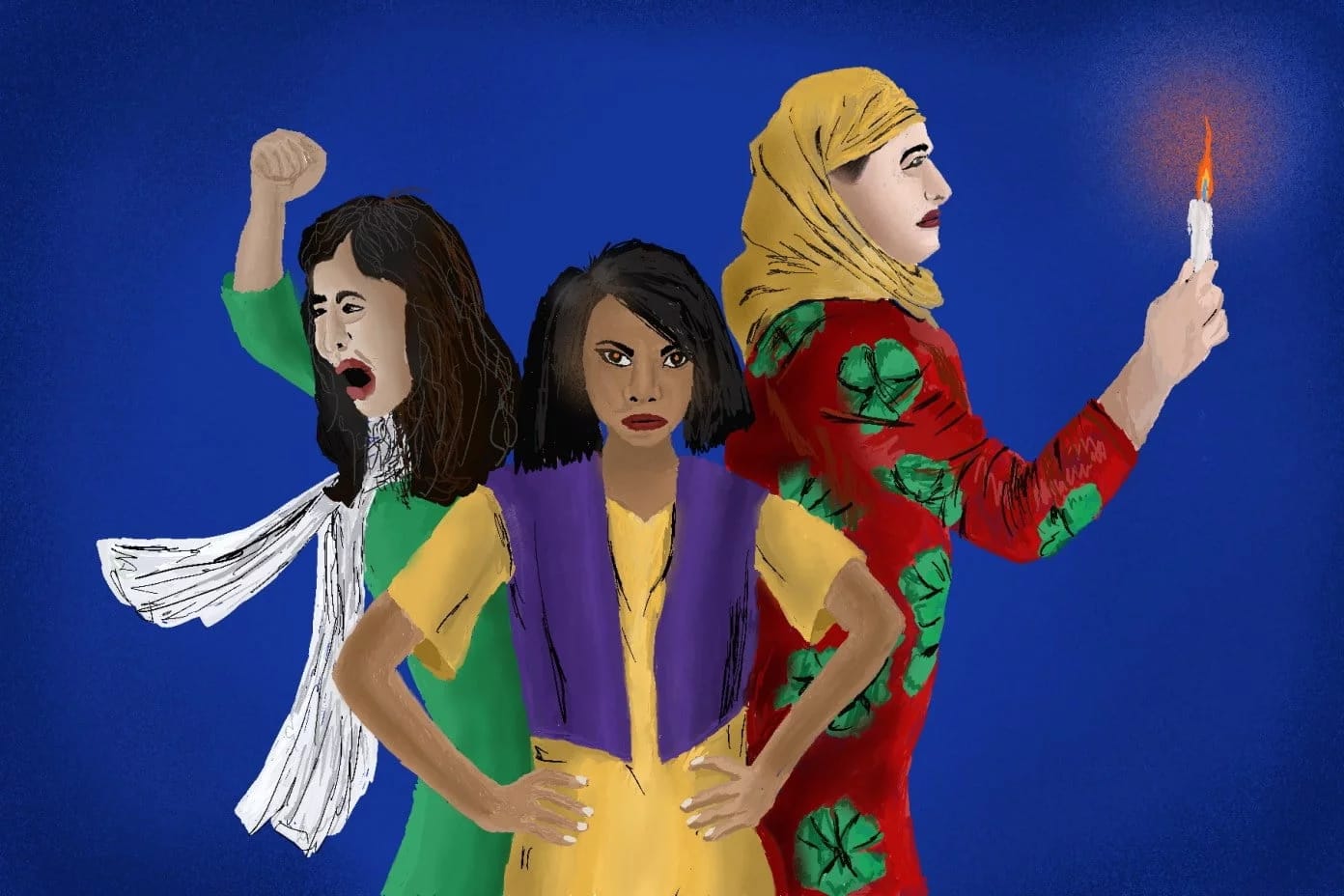
Nirmal’s account, like that of many other women I met, highlights generational trauma and suffering. Mothers teaching their daughters, that keeping the family together is a badge of honour. For the sake of their families’ the daughters like their mothers keep enduring the pain. But then again, at what cost? The question Nirmal stated, ‘Does it matter?‘ echoed deeply.
For domestic violence victims like Nirmal and other women, endurance has turned into an unavoidable fate, which they are conditioned to accept. It is not strength but survival at the cost of their well-being.
Scared and tired women’s bodies
Women respondents would often share stories about their husbands or sons who consume alcohol heavily, and the violence that followed. One such respondent Kiran (name changed) spoke of working on her farm from 5 A.M to 6 P.M, only to feel guilty later because she could not even pack lunch for two children. She felt burdened with the emotion that she is somehow failing her children.
At night, her drunk husband would come home, and arguments would turn into fights. Eventually, nobody in the home could sleep. Kiran could not recall the last time she had a full seven hours uninterrupted night of sleep.
At night, her drunk husband would come home, and arguments would turn into fights. Eventually, nobody in the home could sleep.
This grim cycle of alcohol and violence have consumed daily life of women in villages of Punjab and Haryana. They are physically exhausted, and emotionally and mentally burnt out. Despite this, these women stay and endure. Nirmal and Kiran’s stories are just two among many, but the common thread is clear- these women endured the violence not because of some higher moral purpose, but because they are told they must. This is what they have been taught by their mothers and grandmothers.
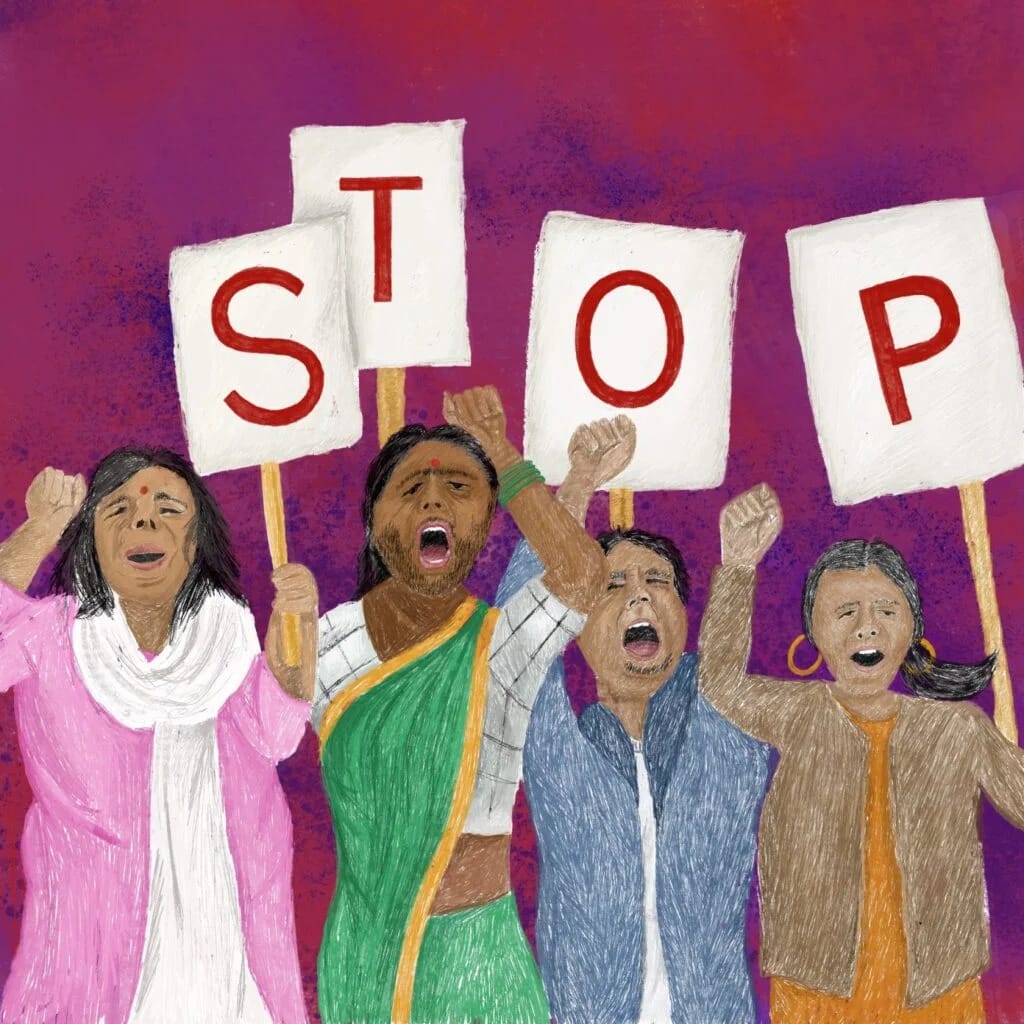
The National Family Health Survey (NFHS-5) from 2019 to 2021 revealed that 32 percent married women (between 18-49 years age) in India have faced domestic violence, with 87 percent never seeking help. This endurance and silence around domestic violence is anything but virtuous. It is a coerced response to systematic neglect, leavening women with minimal or no support against the violence and abuse. The societal pressure on women to “not let their family break” takes a toll on them.
The cost to keep everyone together is their own self. ‘Why do you tolerate such violent behaviour of your husband?‘ I asked a respondent from Fatehabad (Haryana). She looked at me with her tired eyes and said ‘wo mard hai; kuch bhi kar sakta. Ghar ka karta-darta hai‘ (He is the man; he can do it. He is the bread earner of the family).
Perpetuating violence and suffering
During my fieldwork in rural Punjab and Haryana, the accounts I heard from various women presented a bleak reality of our society. Where a women’s suffering is normalised, so much so that, enduring violence for the sake of the family has become a necessary part of role for a wife and mother. Nirmal’s mother instilled in her the value that family is everything, knowingly or unknowingly perpetuating the cycle of endurance and silence.
Our society has failed these women by teaching young girls that a “good girl” or a “good wife” keeps the family intact, even if it means bearing the violence every day.
Our society has failed these women by teaching young girls that a “good girl” or a “good wife” keeps the family intact, even if it means bearing the violence every day. The society does not concern itself with how much women can endure. As it simply does not care. The society is more interested in keeping a façade of family unity, even if such unity is built on the broken lives of women like Nirmal and Kiran.
The need for change
But this has to change. Surviving and saving the marriage must not be highest objective for any women when they face violence. It’s high time we, as a society, reflect on what values we are imparting among young girls. We must focus on enabling and empowering them, so when and if the time requires, they can break free from cycles of violence. And, it requires a profound change in society’s perception of women and their roles. From the young age girls needs to understand and believe that there is no value to enduring violence in relationship.
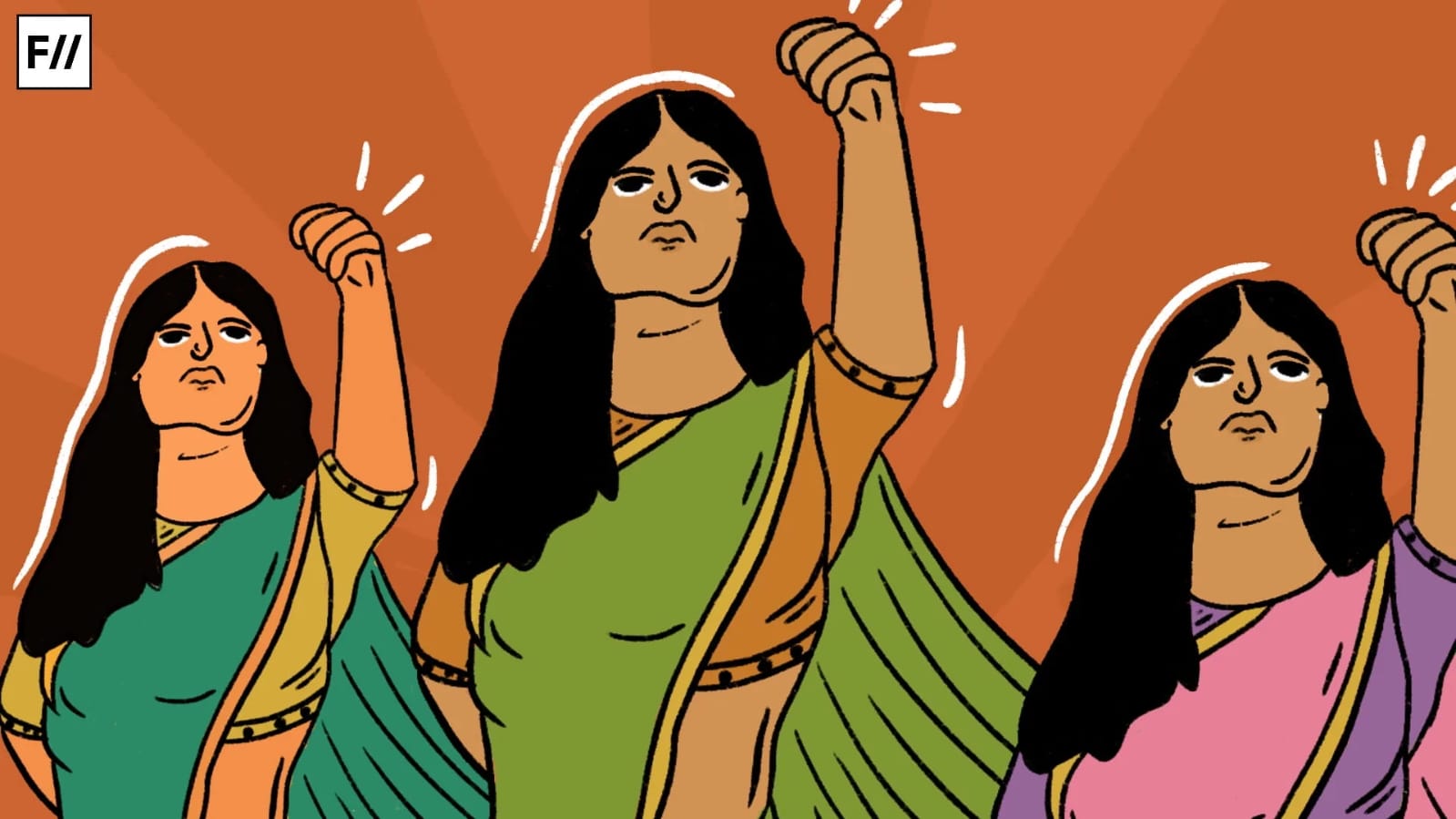
Leaving an abusive marriage/partner does not signify failure. Getting out of the grip of alcohol-fuelled violent marriage even at the cost of their family is not weakness but the real strength. Only then can we start to dismantle the generational trauma and heal the scared wounds of countless lives.
From my experience in the villages of Punjab and Haryana, I understood that change starts with recognising the problem. It involves questioning the lessons/values mothers, grandmothers are passing to their daughters. Women like Nirmal should not have to repeat their mother’s lives. Our society must understand and see this endurance not as a virtue, but as a failure of itself, as it could not provide the safety, support and freedom from domestic violence to such a huge number of women.
About the author(s)
Ritika, a PhD candidate specializing in Indian politics at IIT Guwahati, loves feline companions and coffee, and finds solace in the mountains.
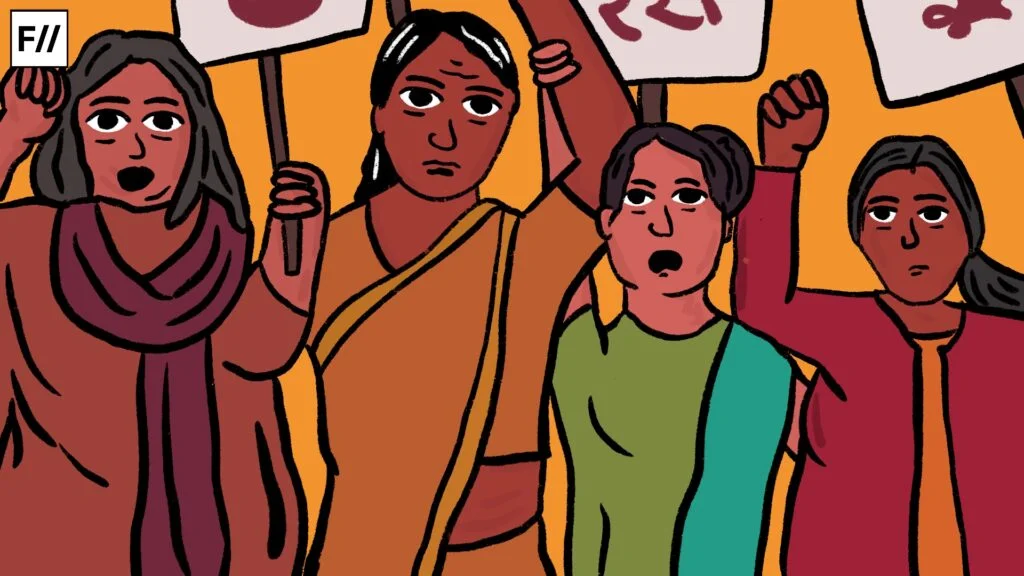

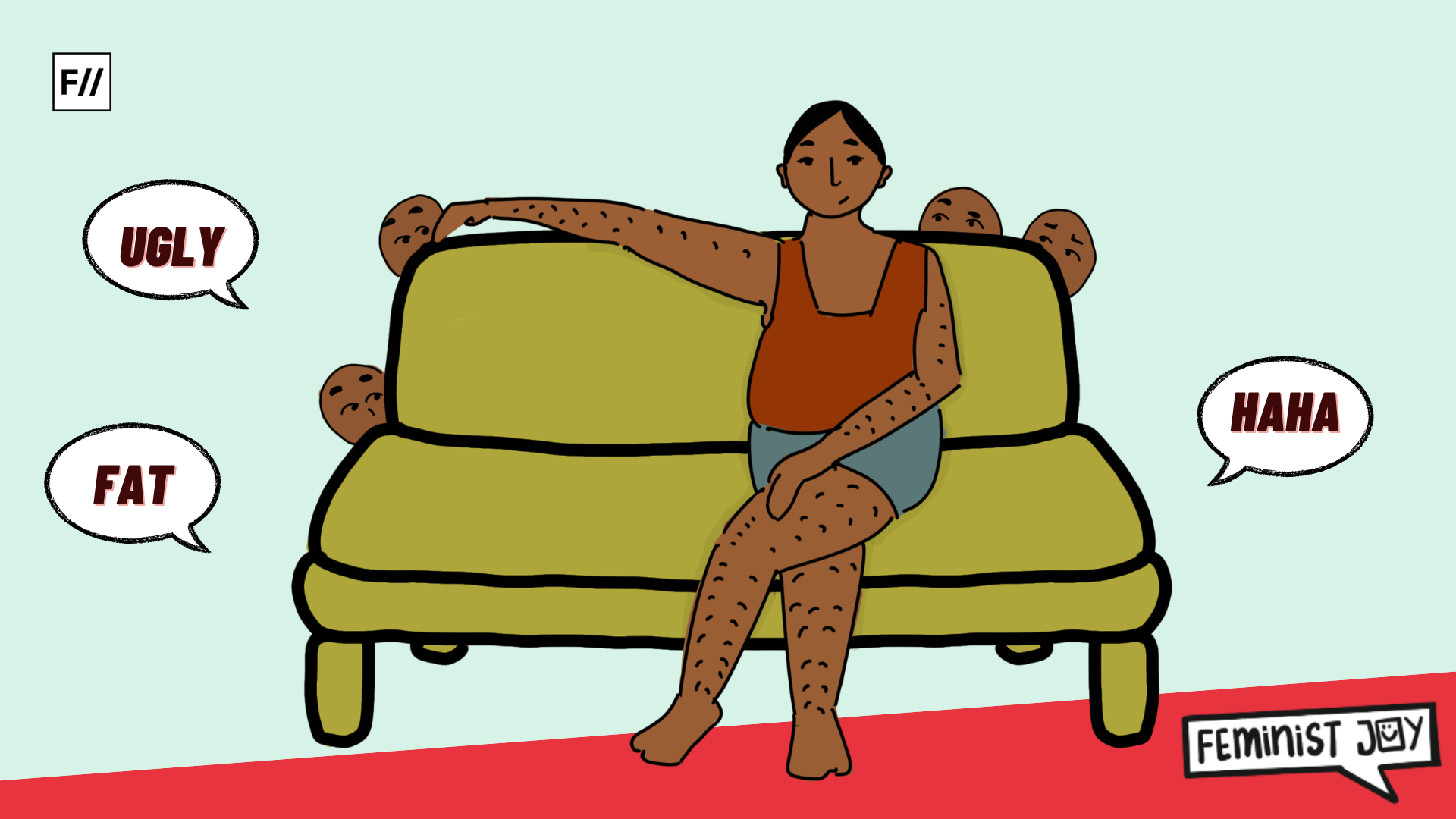
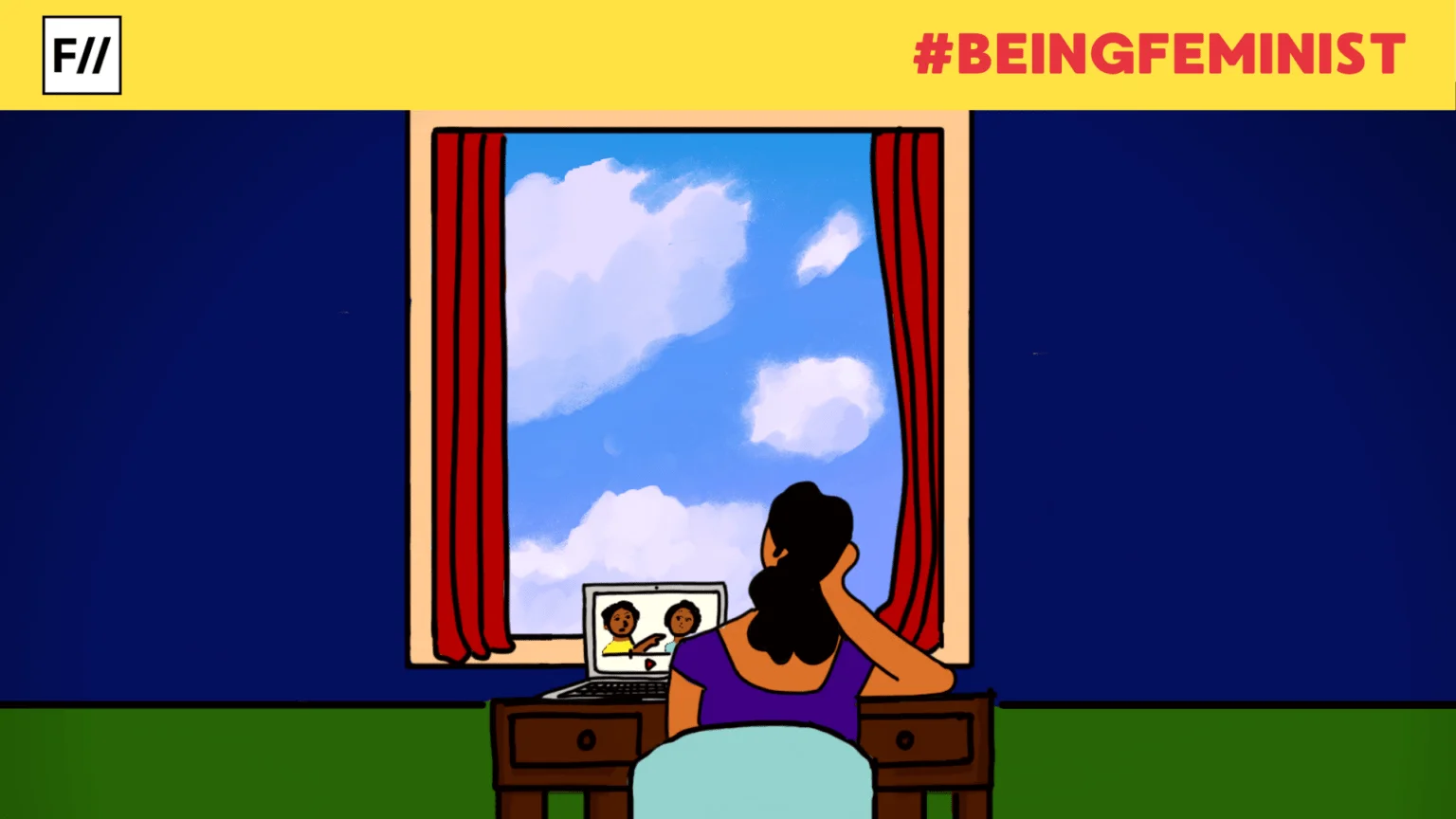
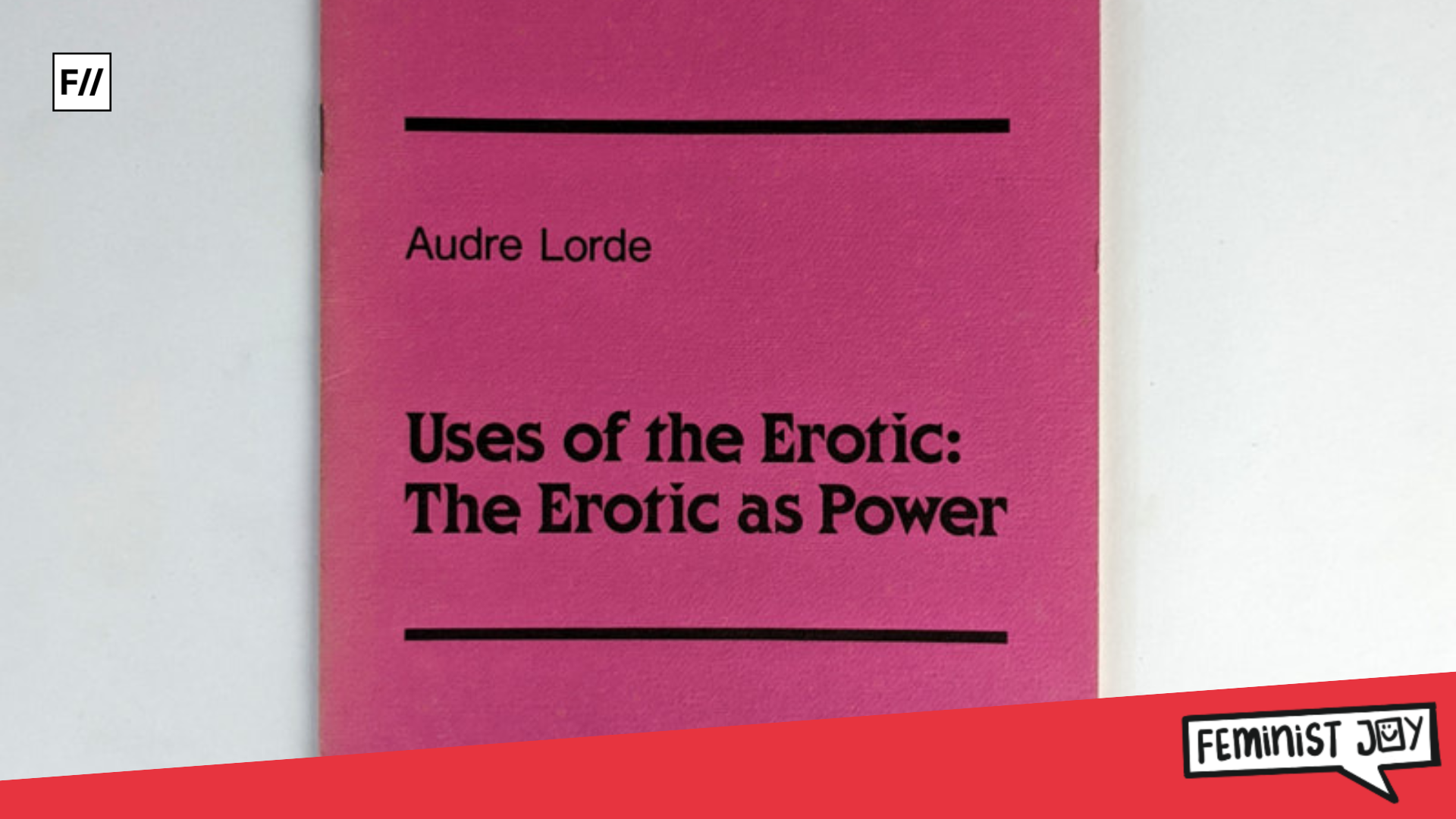

Why don’t feminists ever write about how women suffer at the hands of mothers-in-law and sisters-in-law in joint families?